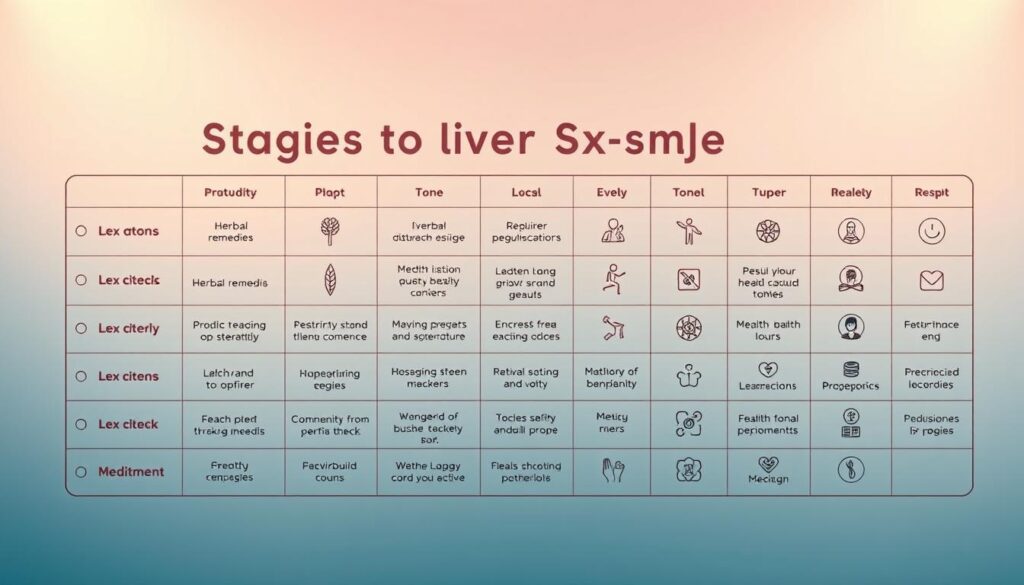Have you ever felt like your desires were controlling you? You’re not alone in this struggle. Many people worry about their high sex drive and want peace.
Libido is a key part of our humanity, varying greatly from one person to another. Factors such as lifestyle and emotions play a big role. By looking into ways to manage it, you can find a healthy balance that fits your life.
Key Takeaways
- Libido varies greatly, with no universal “normal” definition.
- Numerous factors like age, medication, and personal beliefs can affect libido.
- A high libido can sometimes lead to feelings of loss of control.
- Nutritional deficiencies and certain diets can impact sexual health.
- Compulsive sexual behavior may require professional intervention.
- Understanding hormonal influences is crucial for managing libido.
Understanding Libido and Its Variability
Understanding your own sexual desires starts with grasping the concept of libido. It is seen as one’s interest in sexual activities but varies greatly among people. Life experiences and situations greatly affect these differences. This means what is normal for one might not be the same for another.
What is Libido?
Libido is different for everyone and there’s no “normal” level. As people age, their sexual interest can change. It’s common for some to experience lower libido at times. This might be due to Hypoactive Sexual Desire Disorder (HSDD), which leads to fewer sexual thoughts and desire.
Factors Influencing Libido
There are many factors that can decrease libido. These include:
- Anxiety or depression
- Body image issues
- Cultural or religious influences
- Excessive alcohol consumption
- Hormonal contraceptive use
- Medications like antidepressants
- Life transitions such as pregnancy, childbirth, or menopause
- Relationship conflicts and sexual incompatibility
- Underlying health conditions, such as hypothyroidism and diabetes
On the other hand, a very high libido might lead to risky sexual behaviors. Stress, trauma, and certain medical conditions can increase sexual urges.
Common Misconceptions About Sex Drive
There’s a false idea that men always want sex more than women. This belief doesn’t hold up and ignores how personal sexual desire is. Many people find their own libido doesn’t fit these common stereotypes. This highlights how unique each person’s sex drive is.
How to Lower Sex Drive
Looking for ways to lower your sex drive can help you manage intense desires. You can make diet changes, practice mindfulness, and seek professional advice to improve sexual health. Let’s explore some easy-to-follow strategies for managing your sex drive in everyday life.
Dietary Changes to Consider
Your diet plays a key role in your sex drive. Some foods are known to lessen sexual desire by affecting hormone levels. For example, eating spearmint and licorice could reduce testosterone levels. In women, licorice can cut down serum testosterone by about 26%. Making smart dietary changes is a good way to control your libido.
Mindfulness and Relaxation Techniques
Mindfulness helps you become more aware of your feelings and control your sex drive. Activities like meditation and yoga can lower stress, which may reduce your libido. Around 65% of people doing mindfulness see better sexual health. Adding mindfulness techniques to your life could help you manage your desires better.
Seeking Professional Help
Some might need expert advice to deal with their high sex drive. Therapists offer customized help and can pinpoint issues fueling your libido. Up to 40% of those treated for hypersexuality see benefits from adjusted treatments. Talking to a specialist is a smart way to find the right lower sex drive strategies for you.

| Method | Effect | Notes |
|---|---|---|
| Dietary Changes | Potential reduction in testosterone | Including anti-aphrodisiacs like licorice and spearmint |
| Mindfulness Techniques | Enhanced self-awareness and stress management | Practices like meditation report a 65% improvement in sexual function |
| Professional Help | Personalized strategies for lowering libido | Approximately 40% benefit from medication adjustments |
Impact of Mental and Physical Health on Sex Drive
Your overall health affects your sex drive a lot. It’s key to see how things like hormones, stress, and how fit you are all play a part. By looking into these, you may find ways to make things better.
The Role of Hormones in Libido
Hormones are key in controlling libido. Testosterone and estrogen really shape your sexual desire. Changes in these hormones, due to things like age or health, can alter libido. Low testosterone in men can lower sex drive. For women, menopause can change libido, affecting their health. Getting help for hormonal imbalances is important for better sexual health.
Effects of Stress and Anxiety
Stress deeply affects sexual desire. It can make the body’s stress response kick in, messing with mood, sleep, and how you see your body. High stress levels can make your sex drive drop. Anxiety and depression also hurt your libido. They make you less interested in sex and other fun activities. Relationship stress can make this worse, with many saying their sex drive falls because of disagreements or trust issues.
Physical Fitness and Energy Levels
Being fit can really help your sex drive. Exercise boosts libido by making you feel better about yourself and less anxious. Working out makes endorphins, which make you happier. Diseases like diabetes and heart disease can also impact your energy and desire. Keeping fit helps with overall health and your sex life, too.

Communication and Relationship Dynamics
Effective communication is key to strong relationships, especially with different sexual desires. Up to 60% of couples face desire differences. Talking about sexual needs helps build a deeper intimacy beyond just physical contact.
Discussing Sexual Needs with Your Partner
Open talks about sex make a safe space for couples. Research shows this can boost sexual satisfaction by 80%. It helps couples understand each other better, creating a closer bond. Clearing up misunderstandings about sex drive reduces emotional gaps and conflicts.
Finding Fulfillment Beyond Sexual Activity
Fulfillment can come from more than just sex. Things like hugging and sharing experiences can increase happiness. A 75% uptick in happiness comes from valuing emotional over sexual connections. This balance is crucial when partners have varying desires. It deepens the relationship, making closeness enjoyable with or without sex.

Conclusion
Managing your sex drive is a personal journey. It involves understanding your body, mind, and social interactions. Knowing that a high sex drive isn’t always a problem is key. It only becomes an issue if it hurts your life or relationships. About 32% of women and 15% of men have lower sexual desire, showing it’s a common issue.
There are many ways to manage your sex drive. These can include changing what you eat or getting counseling. This article talked about how talking and support in relationships help a lot. Many couples do better when they work on these issues together, not just by themselves.
Think about your sexual health and try out different solutions mentioned here. Everyone’s different, so what works for you might vary. By trying these methods, you could find better sexual health and more meaningful connections.










